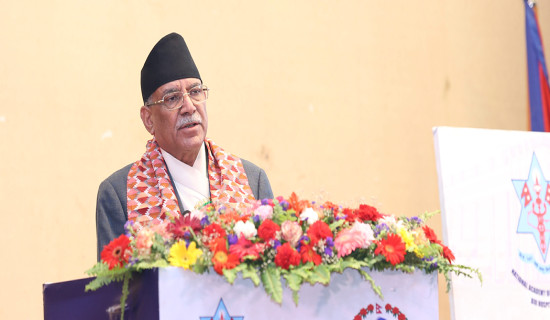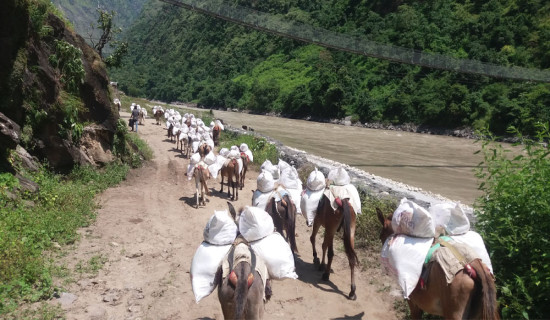- Sunday, 5 May 2024
Rising Military Spending
Bini Dahal
While small nations like Nepal continue to put stress on international peace and security, the global reality is totally different. Today, nearly every continent is suffering from some sort of violence and tension, be it within the country or beyond. Especially, the ongoing Russia-Ukraine war and the Hamas-Israel hostility have further disrupted the possibility of establishing peace in their respective regions. These protracted confrontations have also directly or indirectly affected other parts of the world.
These threats have pushed many countries to increase their military spending. According to Stockholm International Peace Research Institute (SIPRI), in 2023, the world is said to have spent US$ 2.4 trillion on military. This figure accounts for a 2.3 per cent rise as compared to 2.2 per cent in 2022. The spending, which is mainly concentrated on a small number of countries globally, is led by the United States of America (USA). The globe’s largest economy is said to have spent as much as US$ 916 billion, which is around 37 per cent of the total spending. The USA is followed by China which spent US$ 296 billion in 2023.
After the breakout of the Russia-Ukraine war, NATO member nations in Europe have now increased their military budget to US$ 588 billion. This is a 16 per cent rise from 2022. Also, countries in the Central America and the Caribbean Region are also allocating more financial resources to control rising crimes committed by criminal gangs. According to SIPRI, the spending was 54 per cent higher than that of 2014.
These figures paint a grim picture of the current international relations. Every nation acts according to its own set of national interests. While doing so, countries are bound to compete and collide just to ensure their own interests are met with. Such a competition pushes countries to safeguard themselves by increasing their power and military capacity. Therefore, not just the countries that are directly involved in war or tension, other nations are also preparing themselves for fending off potential threats. A lack of trust and constant fear and tension has put international peace and security in a difficult situation.
What is most disappointing is that concepts like disarmament are no more being practised today. Basically, disarmament refers to eliminating or reducing the use of weapons. After the heavy destruction caused by World War II, a special attention was given to disarmament. However, amid security threats, countries have continued to purchase a lot of weapons for defense purposes. For arm exporters like the USA, export figures have increased significantly. News reports highlight a 16 per cent rise in sales of military weapons to foreign governments in 2023 as countries today are stuck in the cycle of arms race.
Within international relations, there is a concept of anarchy. This concept states that there is no global authority to regulate the sovereign states. So the responsibility falls upon the countries to safeguard themselves. International organisations like the United Nations have not been able to fully meet their obligations of maintaining international peace and security. It is high time that countries made collaborative efforts to establish better relations among themselves. Because the world is highly interconnected, the repercussions of actions of any country on another can happen immediately. It is crucial that we identify the root problems, solve them and establish peace and order. The world must move towards promoting brotherhood and establishing sustainable peace.







-square-thumb.jpg)







